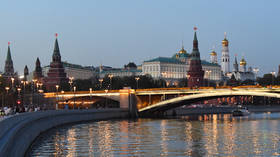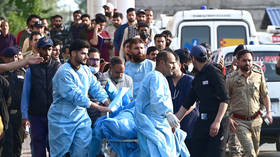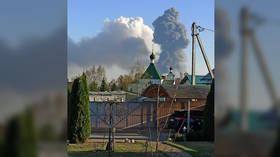Behold Operation Bagration, D-Day of the Eastern Front
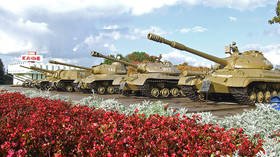
Operation Bagration was the D-Day of the Eastern Front. In scope, size, scale and impact, it was a remarkable feat of arms unmatched in WWII.
Crucially, Overlord (D-Day) and Bagration were planned and undertaken as part of a coordinated effort on the part of the Grand Alliance to break the back of German resistance in Europe with a determination that was equally held by the Soviets, British and Americans to force the unconditional surrender of Hitler’s Germany.
In his book ‘Stalin’s Wars’ Geoffrey Roberts reveals that “Soviet plans for Operation Bagration were closely co-ordinated with Anglo-American preparations for the launch of the long-awaited Second Front in France. The Soviets were informed of the approximate date of D-Day in early April and, on 18 April, Stalin cabled Roosevelt and Churchill that, “as agreed in Tehran, the Red Army will launch a new offensive at the same time so as to give maximum support to the Anglo-American operation.’”
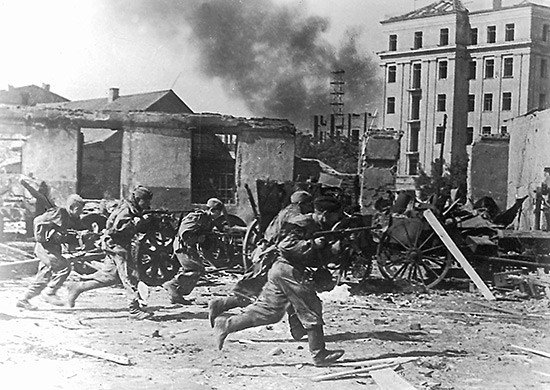
Though both operations were of immense military and strategic importance, Bagration dwarfed Overlord. It began on 22 June, the third anniversary of the Nazi invasion of the Soviet Union in 1941, with air attacks on enemy artillery positions and concentrations, guided by partisan units operating behind German lines.
The main offensive began on 23 June along a 500-mile front, involving close to two million troops.
Operation Bagration was designed to complement D-Day, to effect the liberation of the Soviet territory from the Nazis and destroy the Wehrmacht as a serious fighting force in the East. It achieved all three of these objectives and more.
Also on rt.com The new D-Day? Donald Trump brings a delayed Second Front with UK visitAs British historian and author David Reynolds points out: “In five weeks the Red Army advanced 450 miles, driving through Minsk to the outskirts of Warsaw and tearing the guts out of Hitler's Army Group Centre. Nearly 20 German divisions were totally destroyed and another 50 severely mauled – an even worse disaster than Stalingrad.” He goes on: “This stunning Soviet success occurred while Overlord was still stuck in the hedges and lanes of Normandy.”
The famed Soviet journalist and author, Vasily Grossman, whose collection of wartime journalism, ‘A Writer At War’, is a classic work that should be required reading for those interested in the reality of war and conflict, describes with customary force and power the human toll of the Soviet offensive:
“Sometimes you are so shaken by what you’ve seen,” he writes in one report from the front, “blood rushes from your heart, and you know that the terrible sight that your eyes have just taken in is going to haunt you and lie heavily on your soul all your life.” He continues: “Corpses, hundreds and thousands of them, pave the road, lie in ditches, under the pines, in the green barley. In some places, vehicles have to drive over the corpses, so densely they lie upon the ground.”
Also on rt.com 75 years on from D-Day, is it time Germany liberated itself from the US?Despite the coordination of Operation Bagration with D-Day, and despite the former’s ineffable military and strategic importance, not one mention was made of it during the 75th D-Day anniversary commemorations in Northern France. Such a glaring and unconscionable omission stands as just one of many shameful examples of historical amnesia on the part of Western governments and ideologues in recent years - people more concerned with politicising history than they are with respecting it.
The valor and courage of the 156,000 troops who landed on the Normandy beaches on 6 June 1944 is not in question, nor is that of the thousands of sailors, airmen, and airborne troops who also took part in D-Day. Operation Overlord was and will likely remain the largest amphibious military assault ever mounted. In terms of its ambition, planning and the coordination of the combined military forces of the multiple nations involved, it deserves the place in military history that it commands.
Soviet leader Joseph Stalin more than understood the importance and achievement of D-Day, which he set out in a congratulatory telegram to Roosevelt and Churchill at the time:
“As is evident, the landing, conceived on a grandiose scale, has succeeded completely. My colleagues and I cannot but admit that the history of warfare knows no other like undertaking from the point of view of its scale, its vast conception, and its masterly execution.”
Wind things forward 75 years and the parlous quality of statesmanship in the West, with the open violation of the spirit of the Grand Alliance between East and West that is enshrined in Stalin’s telegram, has never been more lamentable. For example, French President Emmanuel Macron served up a speech in commemoration of D-Day that drew deep from the well of Western exceptionalism. In lauding NATO and the European Union as positive achievements of the war, he confirmed how deeply entrenched the malaise of historical amnesia runs in Western European capitals.
Also on rt.com Ideals that won victory are still the greatest of ideals (by George Galloway)The notion that the men who gave their lives on D-Day, and thereafter in Europe on the way to war’s end in 1945, did so in order to give birth to a continent dependent on Washington and in fear of Moscow, is preposterous. The devastation that Russia suffered in the war, moreover, the magnitude of losses the country incurred, demands the respect and reverence of everyone interested in drawing the right lessons from this epic struggle of world-historical importance.
It is for this reason that the decision not to extend an invitation to Russian President Vladimir Putin to attend the 75th D-Day anniversary celebrations is both a travesty and evidence of the gulf that exists between those for whom history is a guide and those for whom it is a weapon.
A Europe liberated from fascism but divided by a Cold War that shattered forever the hopes for a lasting and enduring peace of equals – for global stability and cooperation reflected in the war’s Grand Alliance between East and West – is nothing to celebrate. It reminds us that, although so much was sacrificed and won by so many during the war, so much was thrown away and lost by so few after it.
Operation Bagration and Operation Overlord should never be spoken of separately. Both were mounted at the same stage in the war by a Grand Alliance that contained within it the seeds of a future that, if it had come to pass, would’ve met the scale of the sacrifice needed to emerge victorious.
The last word goes to Vasily Grossman: “Nearly everyone believed that good would triumph, that honest men, who hadn’t hesitated to sacrifice their lives, would be able to build a good and just life.”
Think your friends would be interested? Share this story!
The statements, views and opinions expressed in this column are solely those of the author and do not necessarily represent those of RT.









